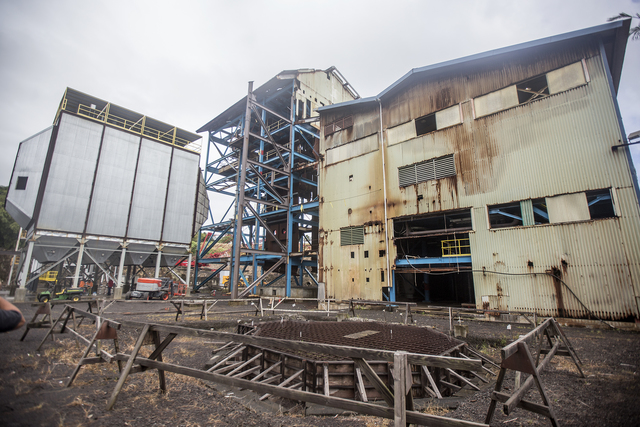Hu Honua Bioenergy filed a civil antitrust complaint in federal court this week, alleging Hawaii Electric Light Co. terminated their power purchase agreement to increase monopolistic control over Hawaii Island’s energy production.
HELCO ended the agreement in March, citing Hu Honua’s failure to meet project milestones for construction of a biomass power plant in Pepeekeo.
But the lawsuit, which also names NextEra Energy and Hamakua Energy Partners as defendants, claims the utility unlawfully terminated its agreement and rejected offers to reduce power costs and extend deadlines.
“Hu Honua regrets that the matter has come to this,” said Harold Robinson, president of Island BioEnergy, the power plant’s majority owner, in a written statement. “We’d rather have a power plant than a lawsuit.”
The lawsuit, filed Wednesday in U.S. District Court, seeks treble damages for the $120 million invested in the half-completed power plant and $435 million in lost profit.
Jim Kelly, vice president of corporate relations for Hawaiian Electric, HELCO’s parent company, said in a statement that Hu Honua was “trying to shift blame for its longstanding troubles” and “we’re confident we can demonstrate that we have acted in good faith and in the best interests of our customers.”
“Hu Honua now estimates the project cost has more than doubled to over $200 million as a result of its own mistakes, which it now apparently expects Hawaii Electric Light’s customers to pay for,” he added.
The lawsuit also alleges NextEra, which unsuccessfully sought to purchase Hawaiian Electric, was involved in the decision to end the agreement, and HELCO’s efforts to acquire HEP also played a role.
Hu Honua alleges the intent was to increase HELCO’s control over power production by reducing the number of independent power producers on the island.
The biomass plant, which faced significant delays because of a dispute with a contractor and a union jurisdiction complaint, was expected to go online last January. It would have produced 21.5 megawatts of electricity, or about 10 percent of the island’s energy needs.
Hu Honua in the lawsuit says it sought an extension for milestone deadlines but claims HELCO, which sought to renegotiate power purchase costs, unreasonably withheld its approval, delaying the project by 20 months.
The parties entered into a 20-year agreement in 2013 that called for HELCO paying $1 million a year plus electrical costs of 21.5 cents per kilowatt for the first 10 megawatts, with a declining price scale for energy purchased above that amount.
Hu Honua says HELCO declined an offer of 14 cents per kilowatt-hour to restore the agreement. That offer would have increased the annual payment to $2 million, but would have saved ratepayers $90 million through 20 years, according to Hu Honua.
The power plant was being built at the site of a former coal-fired plant at the Hilo Coast Processing Co. mill site.
Robinson said it would have created almost “200 local jobs at the facility, in agriculture and ancillary services.”
In May, Hu Honua officials met with elected officials and union representatives for a press conference where they urged HELCO to reach an agreement to save the project.
Email Tom Callis at tcallis@hawaiitribune-herald.com.






